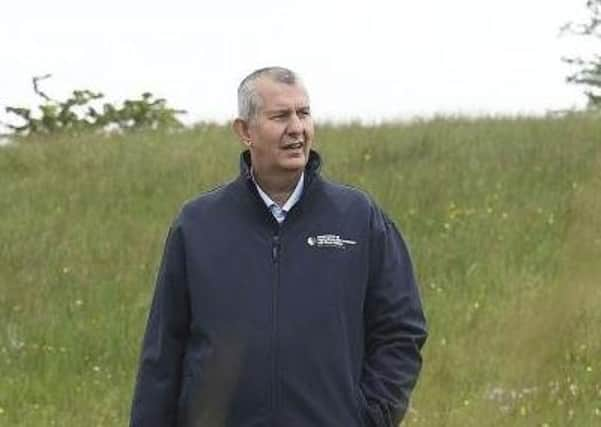Is a compromise in the air on bills?


He took part in a discussion with Green Party MLA Clare Bailey on the BBC’s ‘The View’ programme on Thursday evening past.
Both highlighted the benefits of their respective climate change bills, now making their way through the Stormont legislative process.
Advertisement
Advertisement
Significantly, neither politician ruled out the possibility of reaching a compromise, where this matter is concerned: in other words, pushing forward with some form of hybrid bill.
However, the farm minister made it clear that he would not countenance climate change legislation that compromised the farming sector’s ability to produce food and to retain jobs in rural areas.
On the same programme, Ulster Farmers’ Union president Victor Chestnutt confirmed that farmers will play their part in meeting Northern Ireland’s climate change objectives. But the cattle sector would not be sacrificed, in any way, in order to make this happen.
Meanwhile Edwin Poots spoke at a dinner held earlier this week, held to celebrate McDonald’s 30 years of business in Northern Ireland.
Advertisement
Advertisement
He said:“Farmers in Northern Ireland can feed 10m people. We are an export orientated industry with GB our main market
“Consumption in the UK is heavily dependent on the food produced here in Northern Ireland and this needs to be recognised.
“But massive change will be required within the farming and food sectors. Making this happen will entail investment by the industry itself and courtesy of the public purse. If we are simply to reduce food production levels here, people in England will still need to eat. Such a scenario will lead to an increase in food imports from like Brazil, an approach that will actually increase the carbon footprint of the food produced in the UK.”
According to the farm minister, local farmers can reduce the carbon footprint of the food they produce.
Advertisement
Advertisement
He explained:“We know how to achieve this objective. It’s now a question of investing in the production.”
According to Poots farmers in Northern Ireland should view the challenge of climate change as an opportunity. He sees the on-farm production of biofuels as the route to market in this context.
He explained:“Yes, the environment is a challenge. But we have al these animal nutrients. These can be quite easily converted into energy.”
Poots added: “There is nothing to stop farmers producing all the energy required in Northern Ireland. Hydrogen production on farm is the future. The gas can be used to fuel lorry fleets, aircraft and, eventually, the cars that we all drive.
Advertisement
Advertisement
“There is a tremendous opportunity for farmers to embrace the entire climate change agenda.
“All of this can be developed in ways that deliver a sustainable economy.”
Significantly, Poots made it clear that the production of green energy and high quality food complement each other.
Moreover, Northern Ireland’s food output levels would not suffer on the back of farmers committing to produced greater quantities of biofuels.
Advertisement
Advertisement
He said: “Such an approach will help deliver a better environment and, ultimately, the development of opportunities for Northern Ireland to export green energy.”
Poots concluded: “Making all of this happen will require government, the business sector and individuals working together with a common objective.”